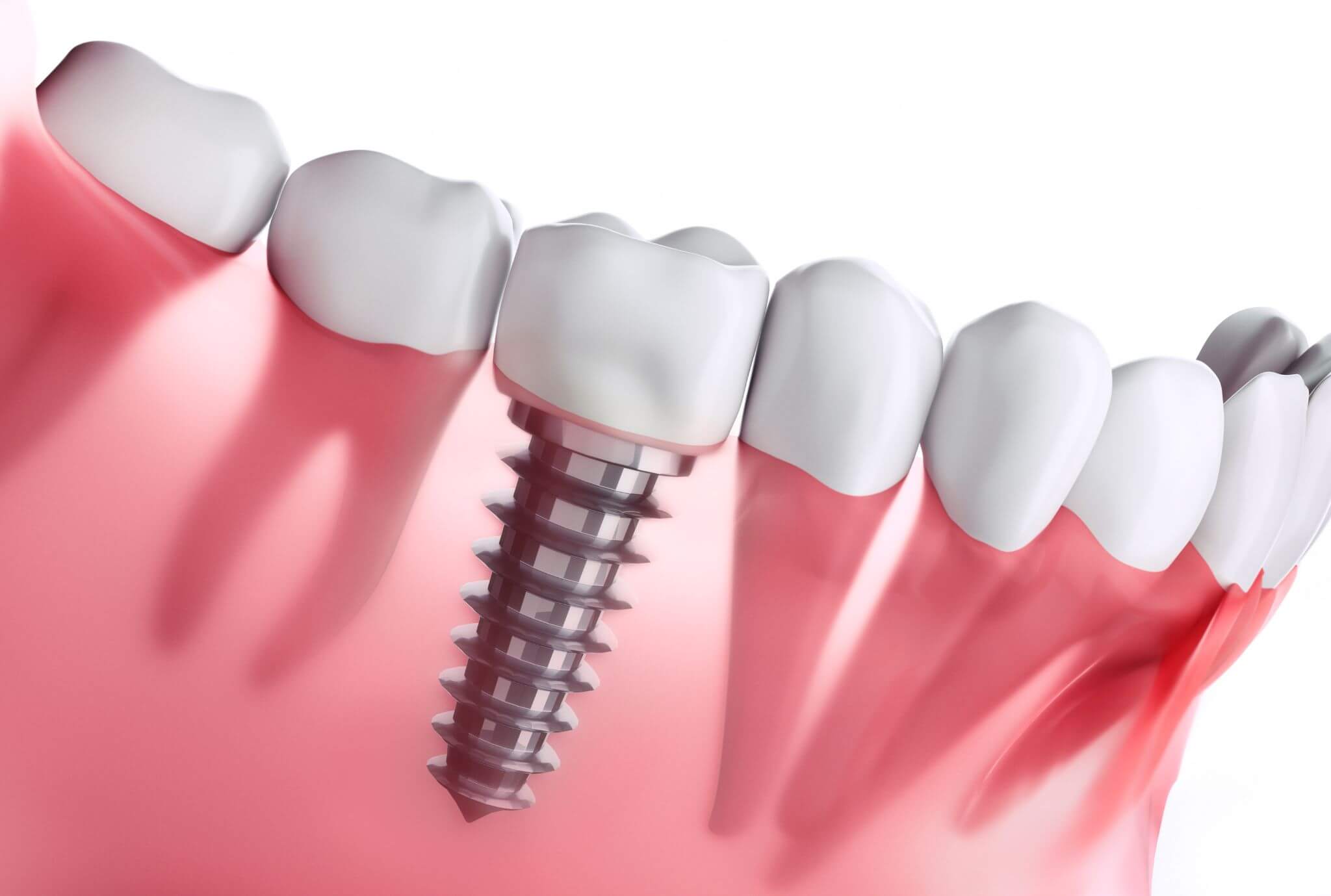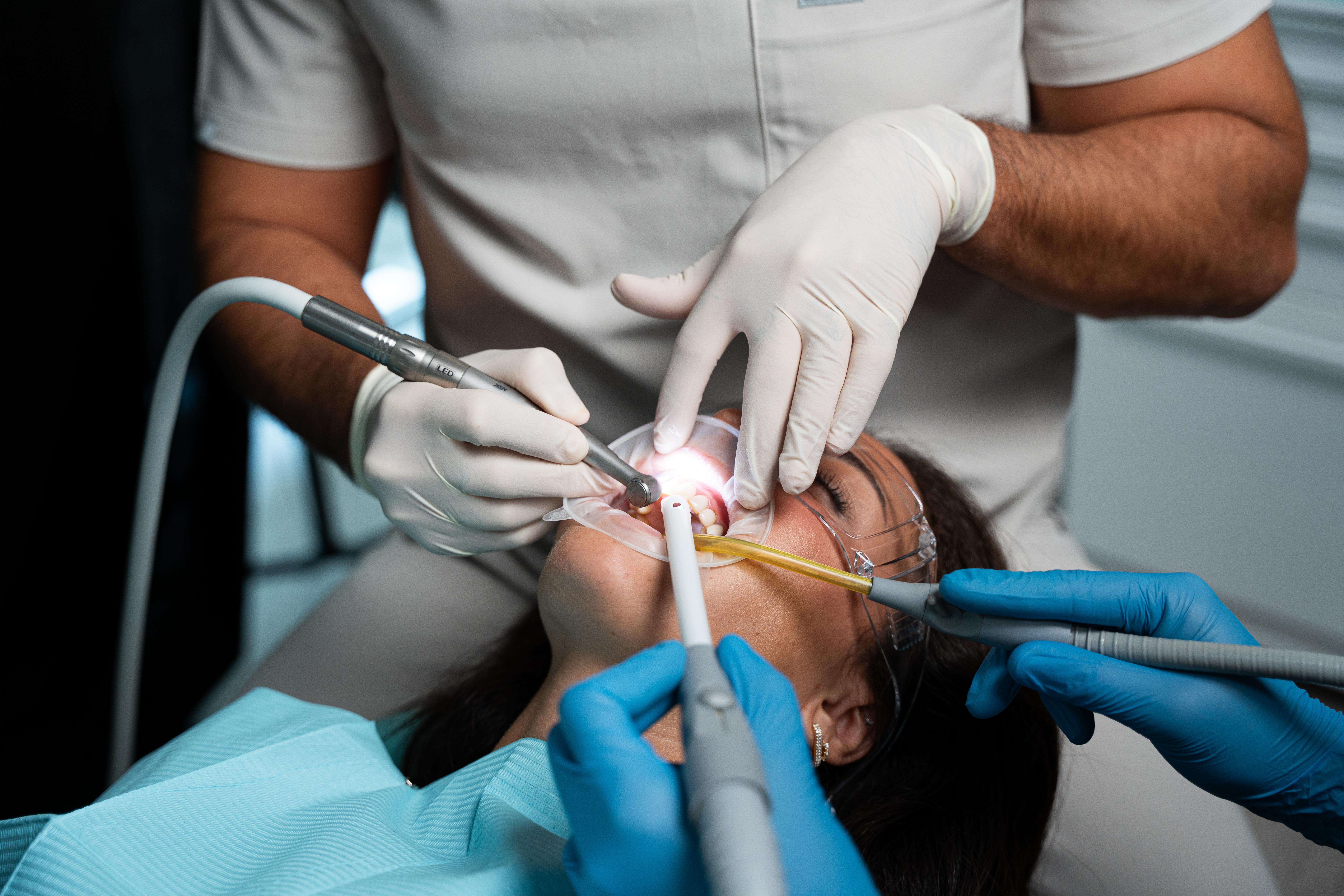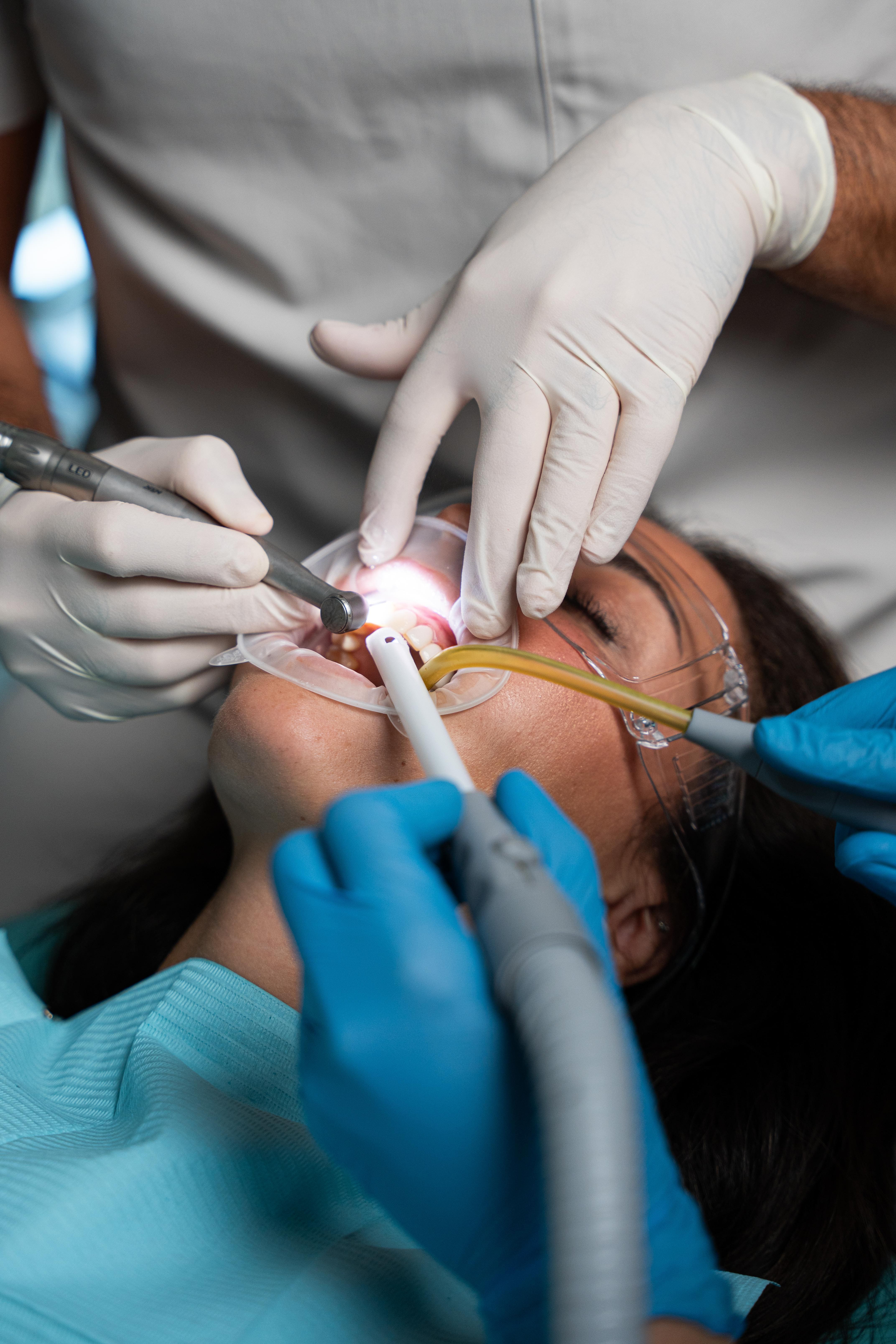Dental Implants
Dental implants replace individual teeth and are also used as support structures (abutments) for implant-supported dentures.
They are placed by dentists who are specially trained in the field.
A dental implant is a structure made from biocompatible material that replaces the root of a missing tooth. It is a screw-like device placed into the jaw bone that allows the attachment of the implant crown, which is visible in the mouth.
At Hortman Clinics, dental implant treatment is performed by certified implantologists who ensure successful, long-term replacement of your missing teeth.





